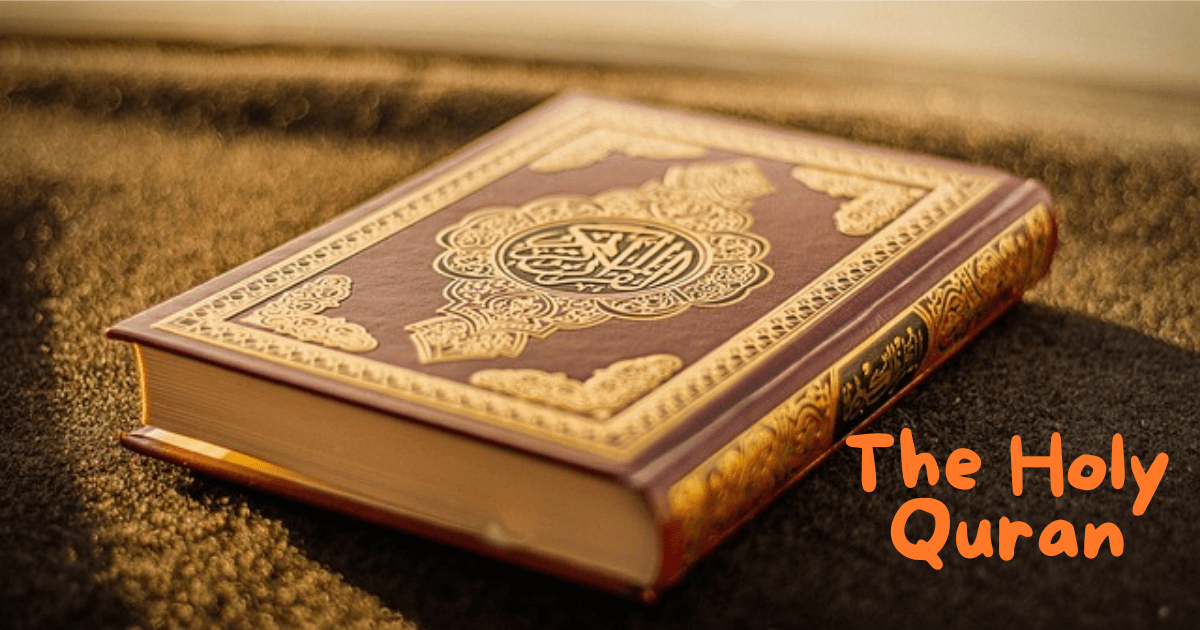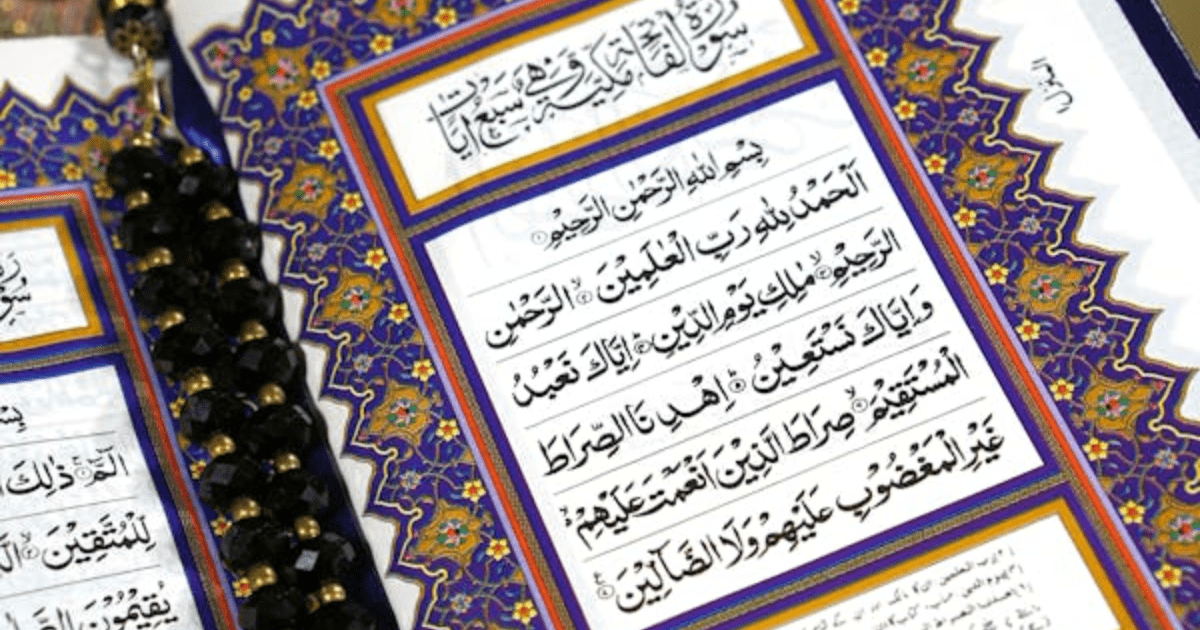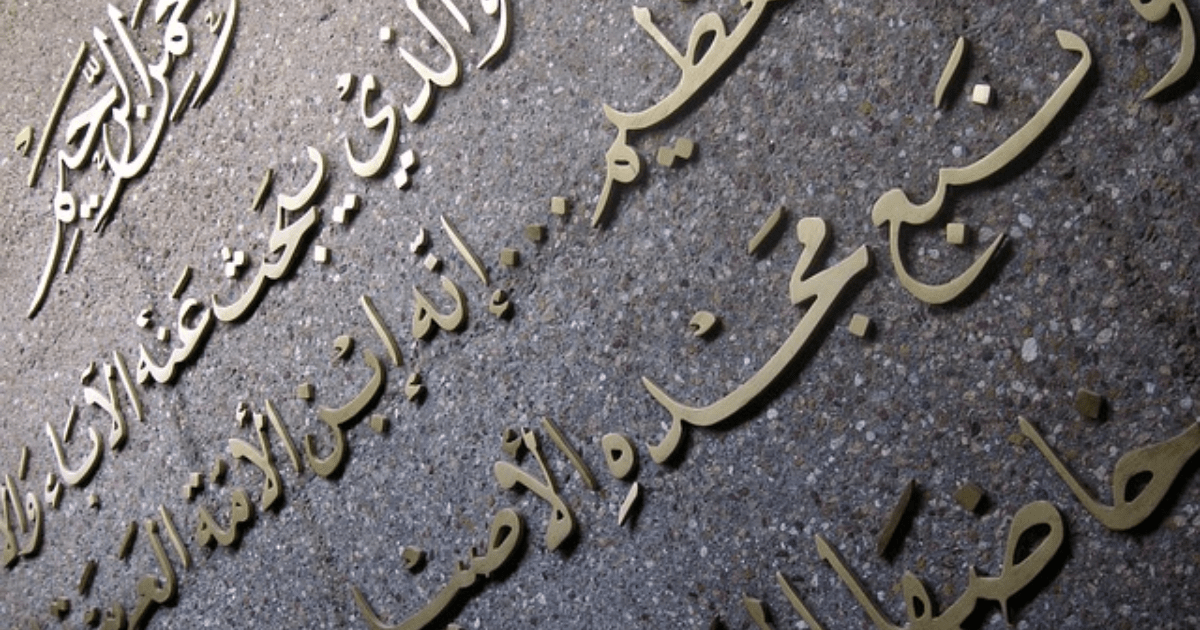
The Holy Quran stands as a timeless guide, revered by over a billion Muslims worldwide. Its verses, revealed to the Prophet Muhammad over a span of 23 years, hold profound wisdom and guidance for all aspects of life. In “The Divine Revelations: Understanding the Holy Quran,” we embark on a journey to explore the rich tapestry of meanings within this sacred scripture.
This book aims to provide a comprehensive understanding of the Quran’s origin, themes, and relevance in today’s world. We delve into its historical context, exploring the life of Prophet Muhammad and the circumstances surrounding each revelation. Through detailed analysis, we uncover the key concepts and ethical teachings that underpin Islamic faith.
Our exploration extends to the Quran’s portrayal of prophets and their stories, shedding light on their moral lessons. We also examine the Quran’s stance on critical issues such as women’s rights, warfare (jihad), and the pursuit of peace. This book explores how the Quran has been interpreted through the ages and its role in shaping Islamic law and society.
Furthermore, we explore the Quran’s engagement with science, uncovering intriguing correlations between Quranic verses and modern scientific discoveries. The influence of the Quran on art and culture, as seen in its intricate calligraphy and profound spiritual imagery, is also a focal point.
Join us as we navigate through the profound teachings and the enduring impact of the Holy Quran, seeking to deepen our understanding of this divine scripture.
The Origin of the Quran
The Quran, believed by Muslims to be the literal word of God (Allah), was revealed to the Prophet Muhammad through the archangel Gabriel over a period of 23 years. The origin of the Quran is intricately linked to the life of the Prophet Muhammad, who was born in Mecca in 570 CE.
Muhammad’s prophethood began at the age of 40 when he received his first revelation in a cave on Mount Hira. The angel Gabriel appeared to him, instructing him to “Recite in the name of your Lord who created.” This marked the beginning of a series of divine revelations that continued until the end of Muhammad’s life.
The Quranic revelations were delivered orally and written down by scribes under Muhammad’s supervision. The compilation of the Quran into a single book occurred shortly after Muhammad’s death in 632 CE during the caliphate of Abu Bakr, Muhammad’s close companion.
The Quran is arranged into chapters (surahs) and verses (ayat) and is written in classical Arabic prose. Its language is considered unparalleled in beauty and eloquence, showcasing various literary styles, including narrative, exhortation, and legal injunctions.
Muslims believe that the Quran is not a human creation but the literal word of God, revealed to guide humanity. Its verses cover diverse topics, including theology, law, morality, and guidance for personal conduct. The Quranic message emphasizes monotheism, the afterlife, social justice, and compassion towards others.
Understanding the origin of the Quran is essential to appreciating its significance in Islamic faith and its enduring impact on the lives of Muslims around the world.
The Structure and Themes of the Quran

The structure of the Quran is a testament to its divine origin and unique literary style. It consists of 114 chapters of varying lengths, known as surahs, each revealed at different times and contexts in the life of Prophet Muhammad. These surahs are further divided into verses, or ayat, which range from a few words to several lines.
The arrangement of the Quran is not chronological but follows a specific order believed to be divinely ordained. The longest chapters are generally placed towards the beginning, with shorter chapters towards the end. Surah Al-Fatiha (The Opening) serves as the opening chapter and is recited in every unit of Muslim prayers.
The themes of the Quran are vast and interconnected, reflecting a holistic worldview that addresses all aspects of human existence. Some of the prominent themes include:
- Monotheism (Tawheed): The Quran emphasizes the oneness of God (Allah) and rejects any form of polytheism or idol worship. Belief in the unity of God is central to Islamic theology.
- Prophethood (Nubuwwah): The Quran acknowledges the role of prophets as chosen messengers of God, sent to guide humanity. Prophets such as Adam, Noah, Abraham, Moses, Jesus, and Muhammad are mentioned, with Muhammad considered the final prophet.
- Revelation (Wahy): The Quran itself is presented as a divine revelation, a direct communication from God to humanity through the angel Gabriel. It reaffirms the authenticity of earlier scriptures, such as the Torah and the Gospel, while presenting itself as the final and complete revelation.
- Divine Guidance (Hidayah): The Quran offers guidance on moral, ethical, and legal matters, providing a comprehensive framework for personal conduct and societal norms. It addresses issues related to family, economics, governance, and social justice.
- Day of Judgment (Qiyamah): The Quran vividly describes the afterlife, including the resurrection, accountability, heaven (Jannah), and hell (Jahannam). Belief in the Day of Judgment serves as a motivator for ethical behavior and piety.
- Mercy and Compassion: The Quranic message emphasizes mercy, compassion, and forgiveness. God is portrayed as the Most Merciful and the Most Compassionate, encouraging believers to emulate these qualities in their interactions.
- Justice (Adl): The Quran advocates for social justice and equity, condemning oppression, exploitation, and discrimination. It champions the rights of the oppressed and marginalized, including orphans, widows, and the poor.
Understanding the structure and themes of the Quran provides insight into its holistic worldview and moral teachings. Each surah and verse contributes to a comprehensive framework of belief and practice, guiding Muslims in their spiritual journey and daily lives.
Key Concepts in the Quran

The Quran introduces several key concepts that form the foundation of Islamic faith and practice. These concepts are central to understanding the message and teachings of the Quran:
- Tawheed (Oneness of God): The concept of Tawheed underscores the absolute unity and uniqueness of God (Allah). It affirms that there is no deity worthy of worship except Allah and rejects the idea of associating partners with Him (shirk). Tawheed is the cornerstone of Islamic monotheism.
- Risalah (Prophethood): The Quran recognizes the institution of prophethood, wherein God communicates with humanity through chosen messengers (prophets). Prophets are sent to convey divine guidance, warn against wrongdoing, and exemplify righteous conduct. Muhammad is considered the final prophet in a long line of messengers that includes Noah, Abraham, Moses, Jesus, and others.
- Akhirah (Hereafter): The Quranic concept of Akhirah refers to the belief in life after death and the Day of Judgment. It emphasizes accountability for one’s actions in this world and the promise of eternal rewards or punishment in the afterlife. Belief in Akhirah shapes ethical behavior and provides hope and solace to believers facing life’s challenges.
- Al-Qadr (Divine Decree): The Quran teaches that everything, including human destiny, is preordained by God’s divine decree (Al-Qadr). This concept encompasses God’s omniscience and omnipotence, underscoring the notion that nothing happens outside of His knowledge and will.
- Salah (Prayer): Salah is the ritual prayer performed by Muslims as a means of worship and spiritual connection with God. The Quran prescribes the daily prayers (Salah) as a fundamental pillar of Islamic practice, emphasizing their significance in fostering piety and mindfulness.
- Zakat (Charity): Zakat is the obligatory almsgiving incumbent upon financially stable Muslims. The Quran highlights the importance of charity (sadaqah) and social welfare, stressing the duty to support the less fortunate and promote economic equity within society.
- Sawm (Fasting): Sawm refers to fasting during the Islamic month of Ramadan, abstaining from food, drink, and worldly pleasures from dawn till sunset. The Quran prescribes fasting as a means of self-discipline, spiritual purification, and empathy towards the needy.
- Hajj (Pilgrimage): The Quran mandates the pilgrimage (Hajj) to the Kaaba in Mecca as a religious obligation for Muslims who are physically and financially able. Hajj is a communal journey of faith, symbolizing unity, equality, and submission to God.
These key concepts encapsulate fundamental beliefs and practices outlined in the Quran, providing a comprehensive framework for Islamic theology and spirituality. They underscore the Quran’s role as a guidebook for personal conduct, social justice, and spiritual fulfillment.
Understanding these concepts enriches one’s appreciation of the Quran’s holistic message and its enduring impact on the lives of Muslims worldwide.
Historical Context of Revelation

The historical context surrounding the revelation of the Quran is essential to understanding its verses and messages. The Quran was revealed to Prophet Muhammad over a span of 23 years, during a time of profound social, political, and religious transformation in Arabia.
- Pre-Islamic Arabia: Before the advent of Islam, the Arabian Peninsula was characterized by tribal divisions, polytheism, and social injustices. Mecca, where the Prophet Muhammad was born, was a major trading center dominated by powerful tribes that controlled religious practices centered around pagan rituals and idol worship.
- Prophet Muhammad’s Life: Muhammad was born into the Quraysh tribe in Mecca around 570 CE. His early life was marked by integrity, honesty, and spiritual reflection. At the age of 40, Muhammad began receiving divine revelations through the angel Gabriel, calling him to convey the message of monotheism and social justice.
- Opposition and Persecution: The initial reception of Muhammad’s message was met with resistance from Meccan elites threatened by the challenge to their authority and religious customs. Muhammad and his followers faced persecution, leading to a period of hardship and exile.
- Migration to Medina (Hijrah): In 622 CE, Muhammad and his followers migrated to Medina, marking a significant turning point in Islamic history known as the Hijrah. In Medina, Muhammad established a cohesive community based on principles of justice, equality, and cooperation.
- Revelations in Context: The Quranic revelations addressed specific challenges faced by the Muslim community, offering guidance on matters of governance, warfare, social relations, and personal conduct. Verses often responded to contemporary events and interactions with neighboring tribes and communities.
- The Treaty of Hudaybiyyah: In 628 CE, a pivotal agreement known as the Treaty of Hudaybiyyah was concluded between the Muslims and the Quraysh tribe of Mecca, granting Muslims the right to peacefully perform pilgrimage (Umrah) and establishing a period of truce.
- Conquest of Mecca: In 630 CE, Muhammad and his followers peacefully entered Mecca after years of exile, marking the triumph of Islam in the Arabian Peninsula. The idols in the Kaaba were removed, and the city became the spiritual center of Islam.
The historical context of revelation provides insight into the pragmatic and dynamic nature of the Quran’s guidance. The Quran addressed immediate challenges faced by the early Muslim community while imparting timeless principles applicable to all times and places.
Studying the historical context enriches our understanding of the Quran’s relevance and the profound impact of its teachings on shaping the course of history and civilization in the Middle East and beyond.
The Prophets and Stories in the Quran

The Quran features narratives of various prophets and their communities, providing moral lessons and spiritual insights. These stories serve as exemplars of faith, resilience, and obedience to God’s commandments.
- Prophet Adam (Adam): The story of Adam and Eve’s creation, their dwelling in paradise, and their eventual expulsion serves as a foundational narrative in the Quran. Adam is depicted as the first human and the recipient of divine guidance.
- Prophet Noah (Nuh): The story of Noah and the Great Flood highlights the theme of obedience to God’s commands and the consequences of disbelief. Noah is portrayed as a patient and determined messenger who built an ark to save believers from the flood.
- Prophet Abraham (Ibrahim): Abraham’s unwavering faith and submission to God are central to numerous Quranic narratives. His willingness to sacrifice his son (Ishmael) as a test of obedience exemplifies the concept of absolute devotion (Ikhlas) to God.
- Prophet Moses (Musa): Moses is a prominent figure in the Quran, chosen by God to liberate the Israelites from oppression in Egypt. The story of Moses confronting Pharaoh, parting the Red Sea, and receiving the Ten Commandments underscores themes of justice and liberation.
- Prophet Jesus (Isa): Jesus is revered as a prophet and messenger in Islam, born miraculously to the Virgin Mary (Maryam). The Quran highlights Jesus’s miracles, including healing the sick and raising the dead, while emphasizing his role as a human servant of God.
- Prophet Muhammad (Muhammad): The Quranic verses reveal details about the life, character, and mission of Prophet Muhammad, affirming his role as the final messenger and exemplar of Islamic teachings. Muhammad’s experiences and interactions with his community offer profound lessons in leadership, compassion, and resilience.
- Other Prophets and Messengers: The Quran mentions several other prophets and messengers, including Joseph (Yusuf), David (Dawud), Solomon (Sulaiman), and John the Baptist (Yahya), among others. Each narrative underscores the universal message of monotheism and ethical conduct.
The stories of the prophets in the Quran emphasize the continuity of divine guidance throughout history and the importance of steadfastness in faith. They convey moral lessons, highlight the consequences of disobedience, and inspire believers to emulate righteous behavior.
Studying these narratives deepens one’s appreciation of the Quran’s timeless wisdom and its relevance in addressing contemporary moral and ethical challenges. The stories of the prophets serve as sources of inspiration and guidance for Muslims striving to embody piety and righteousness in their lives.
Ethical Teachings and Moral Guidance in the Quran

The Quran provides a comprehensive ethical framework that guides Muslims in their personal conduct, social interactions, and moral responsibilities. Its teachings emphasize virtues such as compassion, justice, honesty, humility, and integrity.
- Compassion and Mercy: The Quran repeatedly emphasizes the importance of showing compassion and mercy towards others, including family members, neighbors, and the less fortunate. Believers are encouraged to emulate the mercy of God by being kind and forgiving.
- Justice and Fairness: Justice is a cornerstone of Islamic ethics. The Quran mandates fairness in all dealings and condemns oppression, exploitation, and discrimination. Muslims are urged to uphold justice even if it goes against their personal interests.
- Honesty and Truthfulness: The Quran extols the virtues of honesty and truthfulness in speech and actions. Believers are encouraged to fulfill their promises, avoid deceit, and speak the truth even when it’s difficult.
- Humility and Modesty: Humility is valued in Islamic ethics, and arrogance is condemned. The Quran encourages believers to be modest in their behavior, speech, and appearance, recognizing that true strength lies in humility.
- Generosity and Charity: The Quran promotes generosity and charity as acts of worship. Muslims are enjoined to share their wealth with those in need, fulfill their Zakat obligations, and engage in acts of voluntary charity (sadaqah) to alleviate poverty and suffering.
- Forgiveness and Reconciliation: Forgiveness is regarded as a noble trait in Islam. The Quran urges believers to forgive those who wrong them and seek reconciliation whenever possible. Holding grudges is discouraged in favor of fostering goodwill and harmony.
- Respect for Parents and Family: The Quran emphasizes the importance of honoring parents and maintaining strong family ties. Kindness towards relatives, especially parents, is considered a righteous deed deserving of reward.
- Ethical Business Practices: The Quran outlines principles for ethical business conduct, prohibiting deceit, fraud, and exploitation in trade. Muslims are encouraged to earn their livelihood through lawful means and to fulfill their financial obligations with honesty.
- Environmental Stewardship: The Quran emphasizes the importance of environmental conservation and responsible stewardship of natural resources. Believers are entrusted with the Earth and encouraged to protect and preserve its ecosystems.
- Patience and Perseverance: The Quran extols the virtues of patience (sabr) and perseverance in facing life’s challenges. Believers are encouraged to remain steadfast in faith during trials and tribulations, trusting in God’s wisdom and mercy.
The ethical teachings of the Quran serve as a moral compass for Muslims, guiding them towards virtuous behavior and righteous conduct in all aspects of life. By embodying these teachings, believers strive to cultivate a society characterized by compassion, justice, and integrity.
Studying and applying the ethical guidance of the Quran fosters personal growth, strengthens social bonds, and contributes to the well-being of communities. It underscores the Quran’s role not only as a spiritual guide but also as a source of practical wisdom for navigating life’s complexities with integrity and grace.
The Quran and Modernity

The Quran, revealed over 1400 years ago, offers timeless guidance that remains relevant in the context of modernity. Its teachings address contemporary challenges and provide principles for navigating the complexities of the modern world.
- Relevance of Universal Values: The Quran upholds universal values such as justice, compassion, and ethical conduct, which are essential for promoting peace and harmony in diverse societies. These values transcend cultural and temporal boundaries, resonating with modern aspirations for a just and equitable world.
- Ethical Framework for Technology: In an age dominated by technology, the Quran’s ethical teachings offer principles for responsible innovation and usage. Concepts such as honesty, privacy, and respect for others’ rights can inform ethical guidelines in digital spaces.
- Environmental Conservation: The Quran advocates for environmental stewardship and sustainable practices, emphasizing humanity’s role as custodians of the Earth. Its teachings on resource management and respect for nature resonate with contemporary calls for environmental conservation and climate action.
- Social Justice and Equity: The Quran condemns oppression and exploitation while promoting social justice and equity. Its teachings on wealth distribution, welfare, and care for the marginalized offer insights into addressing contemporary issues of poverty, inequality, and discrimination.
- Interfaith Dialogue: The Quran encourages dialogue and mutual understanding among people of different faiths. Its emphasis on respectful discourse and cooperation can foster interfaith harmony and peaceful coexistence in multicultural societies.
- Women’s Rights and Empowerment: The Quran affirms the dignity and rights of women, advocating for their education, autonomy, and participation in society. Its teachings challenge patriarchal norms and provide a foundation for gender equality and women’s empowerment.
- Ethics in Governance: The Quranic principles of justice, accountability, and consultation inform ethical governance practices. Leaders are reminded of their responsibilities towards their constituents and the importance of transparent and just governance.
- Combatting Extremism and Radicalization: The Quran promotes moderation (wasatiyyah) and condemns extremism and radicalization. Its teachings on tolerance, compassion, and dialogue offer a counter-narrative to ideologies of violence and intolerance.
- Scientific Inquiry and Knowledge: The Quran encourages the pursuit of knowledge and critical inquiry. Muslims are urged to observe and reflect on the natural world as signs of God’s creation, fostering a positive attitude towards scientific exploration and discovery.
- Adaptability and Continual Learning: The Quran emphasizes adaptability and continual learning in response to changing circumstances. Its teachings encourage introspection, self-improvement, and openness to new ideas, facilitating personal and societal development.
The Quran’s enduring relevance in modernity lies in its capacity to address fundamental human concerns and provide ethical guidance for navigating contemporary challenges. By engaging with its teachings, individuals and communities can draw inspiration for building a more just, compassionate, and sustainable world.
Studying the Quran in the context of modernity offers insights into its profound wisdom and its potential to inspire positive change in society. Its teachings serve as a source of hope and guidance for individuals seeking to live meaningful and purposeful lives in today’s complex world.
Women in The Holy Quran

The Quran presents a nuanced portrayal of women, emphasizing their dignity, rights, and contributions to society. Its teachings challenge prevailing norms of patriarchy and elevate the status of women as equal partners in faith and community.
- Dignity and Respect: The Quran affirms the inherent dignity of women, emphasizing their spiritual equality with men. Women are regarded as individuals deserving of respect, autonomy, and protection from exploitation.
- Equality before God: The Quran establishes the spiritual equality of men and women, emphasizing that both are accountable for their actions and devotion to God. Believers, regardless of gender, are encouraged to seek knowledge, perform good deeds, and strive for righteousness.
- Roles and Responsibilities: While acknowledging biological differences, the Quran emphasizes complementary roles rather than hierarchical ones. Men and women are depicted as partners in family life, with shared responsibilities in nurturing children, maintaining households, and contributing to society.
- Marriage and Family: The Quran sets ethical guidelines for marriage and family life, emphasizing mutual love, respect, and companionship between spouses. It affirms women’s right to choose their partners and prohibits forced marriages or coercion.
- Financial and Property Rights: The Quran grants women the right to inherit property and manage their financial affairs independently. This provision ensures economic empowerment and protects women’s financial security.
- Education and Learning: The Quran encourages the pursuit of knowledge and intellectual development for both men and women. Women scholars and educators played significant roles in early Islamic society, contributing to scholarship and religious discourse.
- Social Participation: The Quran promotes women’s participation in public life, allowing them to engage in trade, charitable activities, and community affairs. Women are encouraged to contribute their skills and talents for the betterment of society.
- Modesty and Dress: The Quran promotes modesty in attire for both men and women, emphasizing the importance of decency and self-respect. Modesty is seen as a virtue that transcends outward appearance and encompasses humility and integrity.
- Protection from Abuse: The Quran condemns domestic violence and emphasizes the sanctity of family relationships based on mutual respect and compassion. Women are entitled to legal protection and recourse against abuse or mistreatment.
- Exemplary Women in the Quran: The Quran highlights the stories of exemplary women, including Maryam (Mary), the mother of Jesus, and Khadijah, the Prophet Muhammad’s first wife. These women are celebrated for their piety, wisdom, and courage.
The Quranic perspective on women challenges stereotypes and misconceptions, advocating for gender justice and empowerment within an ethical framework. By embracing Quranic principles, societies can create environments where women thrive as valued members, contributing to progress and prosperity.
Studying women in the Quran offers insights into the Quran’s progressive stance on gender equality and its enduring relevance in addressing contemporary issues of women’s rights and empowerment. The Quran’s teachings serve as a source of inspiration and guidance for promoting gender justice and inclusivity in diverse societies.
Jihad and Peace in Islamic Thought

The concept of jihad in Islamic thought is often misunderstood and misrepresented. The Quran presents a comprehensive understanding of jihad, emphasizing its spiritual, moral, and ethical dimensions alongside the pursuit of peace and justice.
- Meaning of Jihad: Jihad, derived from the Arabic root “jahada” meaning “to strive” or “to exert effort,” encompasses a range of meanings in Islamic thought. It refers to the struggle against one’s own desires and weaknesses (inner jihad) as well as efforts to uphold justice and defend against oppression (outer jihad).
- Spiritual Struggle (Jihad al-Nafs): The Quran highlights the importance of inner jihad, which involves striving against one’s ego, vices, and temptations in pursuit of spiritual growth and moral excellence. This form of jihad emphasizes self-discipline, humility, and sincerity in worship.
- Defensive Warfare (Jihad al-Difa’): The Quran permits defensive warfare (jihad al-difa’) in response to aggression or persecution, emphasizing the right of self-defense and the protection of life, property, and religious freedom. Muslims are instructed to fight only in self-defense and within the bounds of ethical conduct.
- Promotion of Justice (Jihad fi Sabilillah): Jihad fi sabilillah, or striving in the path of God, encompasses efforts to promote justice, alleviate suffering, and uphold righteous causes. This form of jihad includes charitable works, advocacy for human rights, and efforts to establish peace and harmony.
- Conditions of Just War: The Quran imposes strict conditions on the conduct of warfare (qital), requiring adherence to principles of proportionality, non-combatant immunity, and humane treatment of prisoners. Muslims are instructed to seek peace and reconciliation whenever possible.
- Prohibition of Transgression: The Quran unequivocally prohibits aggression, terrorism, and the targeting of innocent civilians in the name of jihad. It condemns extremism and emphasizes the sanctity of human life and dignity.
- Pursuit of Peace: The Quran promotes peace (salam) as an ultimate goal, encouraging dialogue, reconciliation, and conflict resolution through peaceful means. Muslims are urged to prioritize diplomacy, mediation, and mutual understanding in resolving disputes.
- Misconceptions about Jihad: The Quranic concept of jihad has been distorted by extremists and misrepresented in mainstream discourse. Jihad is not synonymous with violence or terrorism but represents a multifaceted struggle for righteousness and justice.
- Ethics of Engagement: The Quran emphasizes ethical conduct in all aspects of life, including interactions during times of conflict. Muslims are reminded to adhere to principles of honesty, compassion, and fairness even in the heat of battle.
- Contemporary Relevance: In the contemporary context, jihad calls for efforts to combat poverty, ignorance, injustice, and environmental degradation. Muslims are encouraged to engage in constructive activism and humanitarian work to address global challenges.
Understanding jihad in Islamic thought requires a nuanced interpretation of Quranic teachings within their historical and ethical contexts. By embracing the Quran’s holistic perspective on jihad, Muslims can contribute positively to building peaceful and just societies grounded in compassion and moral integrity.
Studying the Quranic principles of jihad and peace offers insights into Islam’s commitment to upholding human dignity, promoting social justice, and fostering harmony among diverse communities. The Quran’s teachings on jihad serve as a guide for navigating complex moral dilemmas and striving for collective well-being and mutual respect.
Quranic Interpretation and Exegesis

The Quran is a rich and nuanced scripture that requires careful interpretation and exegesis (tafsir) to understand its meanings and implications. Quranic interpretation encompasses various methodologies and approaches aimed at extracting wisdom and guidance from its verses.
- Historical Context: Understanding the historical context of Quranic revelation is essential for interpreting its verses. Knowledge of the Prophet Muhammad’s life, the circumstances of revelation, and the challenges faced by the early Muslim community provides valuable insights into the meanings of Quranic passages.
- Linguistic Analysis: Quranic interpretation involves linguistic analysis of Arabic terms and expressions used in the Quran. Exploring root words, grammatical structures, and rhetorical devices helps elucidate the intended meanings and nuances of Quranic verses.
- Contextual Interpretation: Verses of the Quran are interpreted in light of other Quranic passages (internal context) and the Hadith (sayings and actions of the Prophet Muhammad) (external context). Contextual interpretation prevents misinterpretation and ensures coherence in understanding Quranic teachings.
- Literal and Allegorical Interpretation: The Quran contains verses that are to be understood literally as well as those with allegorical meanings (mutashabihat). Quranic exegesis employs methodologies to distinguish between literal and metaphorical expressions to grasp the intended messages.
- Interpretative Principles (Usul al-Tafsir): Quranic interpreters adhere to principles of interpretation (usul al-tafsir) that guide their exegetical approaches. These principles include respecting the Arabic language, reliance on authentic Hadith, consistency with established Islamic teachings, and avoidance of personal bias.
- Historical Schools of Interpretation: Throughout Islamic history, different schools of interpretation emerged based on theological perspectives and methodologies. Notable scholars such as Ibn Kathir, Al-Tabari, Al-Razi, and Al-Ghazali contributed to Quranic exegesis, offering diverse insights into its meanings.
- Ethical and Spiritual Dimensions: Quranic interpretation extends beyond linguistic analysis to explore ethical and spiritual dimensions of its teachings. Interpretative efforts focus on extracting moral lessons, guidance for personal conduct, and insights into spiritual development.
- Contemporary Interpretation: In the modern era, Quranic interpretation addresses contemporary issues and challenges faced by Muslim communities globally. Scholars engage in ijtihad (independent reasoning) to derive legal rulings (fatwa) and ethical guidelines based on Quranic principles.
- Cross-Cultural Perspectives: Quranic interpretation welcomes diverse cultural perspectives while adhering to foundational Islamic principles. Scholars strive to bridge cultural gaps and promote mutual understanding by presenting Quranic teachings in ways that resonate with different audiences.
- Relevance and Application: The ultimate goal of Quranic interpretation is to make its teachings accessible and applicable to contemporary contexts. Interpreters aim to empower individuals and communities with practical guidance for navigating moral dilemmas and spiritual growth.
Studying Quranic interpretation deepens one’s appreciation of the Quran’s multifaceted meanings and its relevance in addressing timeless human concerns. By engaging critically with Quranic exegesis, Muslims can derive profound insights and derive practical guidance for living in accordance with Islamic principles.
Quranic interpretation remains a dynamic field of study, evolving to meet the needs of changing times while upholding the integrity and authenticity of Quranic teachings. It serves as a testament to the Quran’s enduring relevance as a source of divine guidance and wisdom for humanity.
Quranic Sciences and Disciplines

The study of the Quran encompasses a diverse range of disciplines known collectively as Quranic sciences. These disciplines explore various aspects of the Quran’s language, structure, themes, and teachings, providing a comprehensive understanding of this sacred scripture.
- Qira’at (Recitation): Qira’at focuses on the different methods of reciting the Quran, known as Ahruf and Qira’at. This discipline examines variations in pronunciation and dialectical readings while preserving the integrity of the Quranic text.
- Tajwid (Recitation Rules): Tajwid involves the study of proper Quranic recitation, including rules of pronunciation, intonation, and rhythmic patterns. Tajwid ensures the accurate and melodious recitation of the Quran, reflecting the beauty and precision of its revealed language.
- ‘Ulum al-Quran (Quranic Sciences): ‘Ulum al-Quran encompasses a broad range of disciplines related to the Quran, including its revelation, compilation, preservation, and interpretation. Scholars in this field explore the historical, linguistic, and theological dimensions of the Quran.
- Asbab al-Nuzul (Causes of Revelation): Asbab al-Nuzul examines the contextual reasons behind the revelation of Quranic verses. Understanding the causes of revelation provides insights into the specific events and circumstances that shaped Quranic teachings.
- Tafsir (Exegesis): Tafsir refers to the scholarly interpretation and commentary of the Quran. This discipline explores the meanings, themes, and implications of Quranic verses, utilizing linguistic, historical, and theological methods of analysis.
- ‘Ilm al-Hadith (Hadith Sciences): Hadith sciences are integral to understanding the context and application of Quranic teachings. Hadith collections contain sayings and actions of the Prophet Muhammad, providing additional context for interpreting Quranic verses.
- ‘Ilm al-Rijal (Science of Narrators): ‘Ilm al-Rijal evaluates the reliability and authenticity of Hadith narrators, ensuring the preservation of prophetic traditions and authoritative sources for Quranic interpretation.
- ‘Ilm al-Balaghah (Rhetoric): ‘Ilm al-Balaghah explores the rhetorical devices and stylistic features employed in the Quran. This discipline highlights the eloquence, coherence, and persuasive power of Quranic language.
- ‘Ilm al-Nasikh wa al-Mansukh (Abrogation): ‘Ilm al-Nasikh wa al-Mansukh deals with the concept of abrogation in the Quran, where certain verses or laws are superseded or modified by later revelations. Understanding abrogation is crucial for contextualizing Quranic teachings.
- ‘Ilm al-Huruf (Science of Letters): ‘Ilm al-Huruf investigates the significance of Arabic letters and numerology in Quranic texts. This discipline delves into the mystical and symbolic interpretations of Quranic letters and their spiritual implications.
Quranic sciences contribute to a holistic understanding of the Quran’s revelation, transmission, and interpretation. Scholars in these disciplines engage in rigorous scholarship to preserve the integrity and authenticity of the Quran while elucidating its profound meanings and teachings.
Studying Quranic sciences fosters appreciation for the linguistic, theological, and spiritual dimensions of the Quran. It equips individuals with the knowledge and skills needed to interpret Quranic texts responsibly and apply their teachings effectively in personal and communal contexts.
The ongoing exploration of Quranic sciences ensures the preservation and dissemination of Quranic knowledge for future generations, reaffirming the Quran’s status as a timeless guide and source of divine wisdom for humanity.
Quranic Influence on Language and Literature

The Quran’s profound impact extends beyond religious and spiritual realms to influence language, literature, and cultural expressions across diverse civilizations. Its linguistic richness, eloquence, and poetic beauty have inspired poets, scholars, and writers throughout history.
- Arabic Language Enrichment: The Quran’s revelation in classical Arabic contributed to the preservation and development of the Arabic language. Its eloquent verses set linguistic standards and enriched vocabulary, paving the way for literary excellence in Arabic literature.
- Poetic and Rhythmic Verses: The Quran’s rhythmic and melodious verses exemplify poetic mastery, captivating listeners with its musicality and elegance. Its linguistic features, such as rhyme, meter, and imagery, have influenced Arabic poetry and literary traditions.
- Literary Genres and Forms: Quranic narratives and themes inspired the development of literary genres and forms in Islamic literature. Classical Arabic literature, including epic poetry, mystic prose, and philosophical treatises, reflects Quranic motifs and storytelling techniques.
- Prose and Prophetic Tradition: The Hadith literature, which records sayings and actions of the Prophet Muhammad, emulates Quranic style and language. Prophetic traditions draw on Quranic teachings to convey ethical principles and spiritual insights.
- Islamic Calligraphy and Art: The Quran’s aesthetic beauty is celebrated through Islamic calligraphy, which transforms its verses into intricate artworks. Quranic inscriptions adorn mosques, palaces, and manuscripts, embodying the spiritual significance of Quranic texts.
- Literary Influence Beyond Arabic: Translations of the Quran into various languages introduced its linguistic and literary qualities to non-Arabic-speaking cultures. Quranic motifs and expressions have left indelible marks on world literature, inspiring poets and writers across linguistic boundaries.
- Mystical Poetry and Sufi Traditions: Sufi poets drew inspiration from Quranic symbolism and metaphors to express spiritual insights and mystical experiences. Sufi literature, characterized by profound symbolism and emotional depth, reflects the Quran’s influence on Islamic spirituality.
- Narrative Themes and Archetypes: Quranic narratives of prophets, parables, and moral lessons provided archetypal themes for storytelling in Islamic literature. These themes resonate with universal human experiences and ethical dilemmas, enriching literary traditions worldwide.
- Cultural Identity and Heritage: The Quran serves as a foundational text shaping the cultural identity and heritage of Muslim communities. Its teachings and values permeate literature, folklore, and oral traditions, fostering a sense of belonging and continuity across generations.
- Cross-Cultural Dialogue: The Quran’s universal messages of justice, compassion, and monotheism facilitate cross-cultural dialogue and understanding. Its influence transcends religious boundaries, fostering mutual appreciation of shared values and aspirations.
The Quran’s enduring influence on language and literature underscores its status as a literary masterpiece and a source of artistic inspiration. By engaging with Quranic themes and motifs, writers and artists continue to draw from its timeless wisdom, contributing to a rich tapestry of global cultural heritage.
Studying the Quranic influence on language and literature deepens appreciation for its profound impact on human creativity and expression. It invites individuals to explore the spiritual dimensions of artistic endeavors and fosters intercultural dialogue rooted in shared values and aspirations.
Quranic Ethics and Contemporary Challenges

The ethical teachings of the Quran provide profound insights and guidance for addressing contemporary challenges faced by individuals and societies. Quranic ethics emphasize principles of justice, compassion, integrity, and social responsibility, offering a framework for navigating complex moral dilemmas.
- Social Justice and Equity: The Quran promotes social justice by advocating for the fair distribution of wealth, protection of vulnerable populations, and empowerment of marginalized communities. Its teachings inspire efforts to combat poverty, inequality, and discrimination.
- Human Rights and Dignity: Quranic ethics affirm the inherent dignity and rights of every individual, regardless of race, gender, or background. The Quran condemns oppression and exploitation, emphasizing the importance of treating others with compassion and respect.
- Environmental Stewardship: Quranic teachings highlight humanity’s responsibility as stewards of the Earth. Muslims are urged to protect the environment, conserve natural resources, and practice sustainable lifestyles in harmony with nature.
- Ethical Business Practices: The Quran encourages honesty, transparency, and fairness in economic transactions. Islamic principles prohibit fraud, exploitation, and usury (riba), promoting ethical entrepreneurship and responsible corporate governance.
- Interfaith Dialogue and Mutual Respect: Quranic ethics emphasize dialogue, cooperation, and mutual respect among people of different faiths. The Quran calls for peaceful coexistence and encourages believers to engage in constructive interfaith dialogue.
- Gender Equality and Women’s Rights: Quranic ethics affirm the equal worth and rights of men and women. The Quran advocates for gender equality, women’s education, and empowerment, challenging patriarchal norms and promoting inclusive societies.
- Ethics of Conflict Resolution: The Quran promotes peaceful conflict resolution through dialogue, negotiation, and reconciliation. Muslims are encouraged to prioritize diplomacy and non-violent means of resolving disputes.
- Ethical Leadership and Governance: Quranic ethics guide leaders to govern with justice, accountability, and compassion. Leaders are reminded of their responsibilities to serve the common good and uphold the rights of all individuals.
- Compassionate Healthcare and Welfare: Quranic ethics emphasize compassion and care for the sick, elderly, and vulnerable members of society. Muslims are encouraged to support healthcare initiatives and social welfare programs to alleviate suffering and promote well-being.
- Media Ethics and Communication: Quranic ethics inform responsible media practices, emphasizing truthfulness, fairness, and respect for privacy. Muslims are urged to promote positive narratives and constructive discourse in media and communication channels.
Applying Quranic ethics to contemporary challenges requires a proactive and holistic approach grounded in compassion and justice. By embodying Quranic values in daily life, individuals and communities can contribute to positive social change and foster inclusive societies based on shared principles of humanity and dignity.
Studying Quranic ethics equips individuals with moral clarity and ethical principles to navigate complex ethical dilemmas in personal and professional settings. The Quran’s teachings serve as a timeless guide for fostering harmonious relationships, upholding human rights, and promoting the common good in an increasingly interconnected world.
The Quran and Personal Development

The Quran serves as a profound guide for personal development, offering transformative insights and practical wisdom to help individuals cultivate inner virtues and achieve spiritual growth. Its teachings inspire self-reflection, resilience, and ethical conduct, empowering believers to lead purposeful and fulfilling lives.
- Self-Awareness and Reflection: The Quran encourages introspection (muhasabah) and self-awareness, prompting individuals to examine their beliefs, behaviors, and aspirations. Self-reflection fosters personal growth and enables individuals to align their actions with ethical principles.
- Spiritual Fulfillment: Quranic teachings nurture spiritual well-being by emphasizing devotion (ibadah), mindfulness, and connection with the divine. Prayer (salah), fasting (sawm), and acts of charity (sadaqah) are integral to nurturing a deep sense of spiritual fulfillment.
- Resilience and Patience (Sabr): The Quran extols the virtues of patience (sabr) in facing life’s challenges and adversities. Believers are encouraged to persevere with fortitude and trust in God’s wisdom, finding strength in moments of difficulty.
- Ethical Conduct and Character Development: Quranic ethics guide individuals in cultivating virtuous character traits such as honesty, humility, compassion, and integrity. The Quran emphasizes the importance of righteous conduct (amal salih) and upholding ethical principles in all endeavors.
- Emotional Intelligence and Empathy: Quranic teachings promote emotional intelligence by encouraging empathy, forgiveness, and compassion towards others. Believers are urged to control their emotions (nafs) and cultivate empathy as a cornerstone of moral conduct.
- Continuous Learning and Growth: The Quran advocates lifelong learning (ta’allum) and personal development. Believers are encouraged to seek knowledge, acquire new skills, and pursue intellectual growth to fulfill their potential and contribute meaningfully to society.
- Overcoming Negative Habits and Addictions: Quranic guidance offers strategies for overcoming negative habits and addictions through self-discipline and spiritual reflection. Believers are empowered to break free from harmful behaviors and embrace healthier lifestyles.
- Building Meaningful Relationships: The Quran emphasizes the importance of nurturing positive relationships based on mutual respect, trust, and kindness. Believers are encouraged to maintain strong family ties and cultivate supportive friendships.
- Goal Setting and Purposeful Living: Quranic principles inspire individuals to set meaningful goals aligned with moral values and spiritual aspirations. Believers are encouraged to lead purposeful lives driven by a sense of purpose and service to humanity.
- Gratitude and Contentment: The Quran promotes gratitude (shukr) and contentment (qana’ah) as keys to personal well-being and spiritual fulfillment. Believers are reminded to appreciate blessings and cultivate a positive mindset grounded in gratitude.
Applying Quranic teachings to personal development fosters holistic growth and inner transformation. By embodying Quranic values in daily life, individuals can cultivate resilience, deepen self-awareness, and strive towards becoming compassionate, ethical, and spiritually grounded beings.
Studying the Quran for personal development opens doors to profound insights and practical strategies for leading a purpose-driven life. The Quran’s timeless wisdom provides a roadmap for navigating life’s challenges, fostering inner peace, and embracing personal growth with sincerity and humility.
The Quran’s Enduring Legacy and Universal Message

The Quran’s enduring legacy transcends time and space, offering a universal message of guidance, wisdom, and spiritual enlightenment to humanity. Its profound teachings continue to inspire millions of believers worldwide, shaping cultures, societies, and individual lives.
- Guidance for Humanity: The Quran presents itself as a timeless guide for all of humanity, addressing universal themes of faith, morality, and the purpose of existence. Its teachings resonate with people of diverse backgrounds and cultures, offering insights into the human condition.
- Source of Moral and Ethical Principles: The Quran establishes a comprehensive ethical framework rooted in justice, compassion, and righteousness. Its moral teachings provide universal principles for fostering harmonious relationships and promoting social justice.
- Interfaith Dialogue and Understanding: The Quran encourages dialogue and mutual understanding among people of different faiths. Its message of monotheism and ethical conduct serves as a bridge for fostering interfaith harmony and cooperation.
- Empowerment of Women and Social Equality: Quranic teachings challenge patriarchal norms and affirm the dignity and rights of women. The Quran promotes gender equality, education, and social justice, contributing to the empowerment of women globally.
- Spiritual Enlightenment and Inner Peace: The Quran offers spiritual enlightenment by guiding individuals towards a deeper connection with the divine. Its verses inspire inner peace, contentment, and spiritual fulfillment amidst life’s challenges.
- Resilience and Hope: Quranic narratives of prophets and righteous individuals exemplify resilience in the face of adversity. Believers draw strength from Quranic stories, finding hope and inspiration in the triumph of faith over hardship.
- Cultural and Artistic Expressions: The Quran’s poetic language and imagery have inspired diverse artistic expressions, including calligraphy, architecture, music, and literature. Its aesthetic beauty is celebrated across cultures, enriching global artistic heritage.
- Quest for Knowledge and Inquiry: The Quran encourages critical thinking, reflection, and the pursuit of knowledge. Muslims throughout history have contributed to advancements in science, medicine, philosophy, and other fields inspired by Quranic principles.
- Social Justice and Humanitarian Values: Quranic teachings advocate for social justice, compassion, and solidarity with the marginalized. Muslims are urged to engage in charitable works (zakat) and uphold human rights as expressions of faith.
- Legacy of Peace and Harmony: The Quran promotes peace (salam) as a fundamental aspiration, encouraging dialogue, reconciliation, and conflict resolution. Its message of unity and compassion fosters peaceful coexistence in diverse societies.
The Quran’s universal message continues to resonate with believers seeking spiritual guidance, moral clarity, and personal fulfillment. Its enduring legacy reflects the profound impact of divine revelation on human civilization, inspiring individuals to embody its timeless values in pursuit of a more just, compassionate, and harmonious world.
Studying the Quran enriches lives by deepening understanding of its teachings and fostering a sense of purpose and spiritual connectedness. As humanity navigates contemporary challenges, the Quran remains a beacon of hope and wisdom, offering transformative insights for individuals and societies striving towards a better future.
In conclusion, the Quran’s enduring legacy is a testament to its role as a divine scripture that transcends cultural boundaries, enriches human experiences, and guides hearts towards the path of righteousness and enlightenment.



